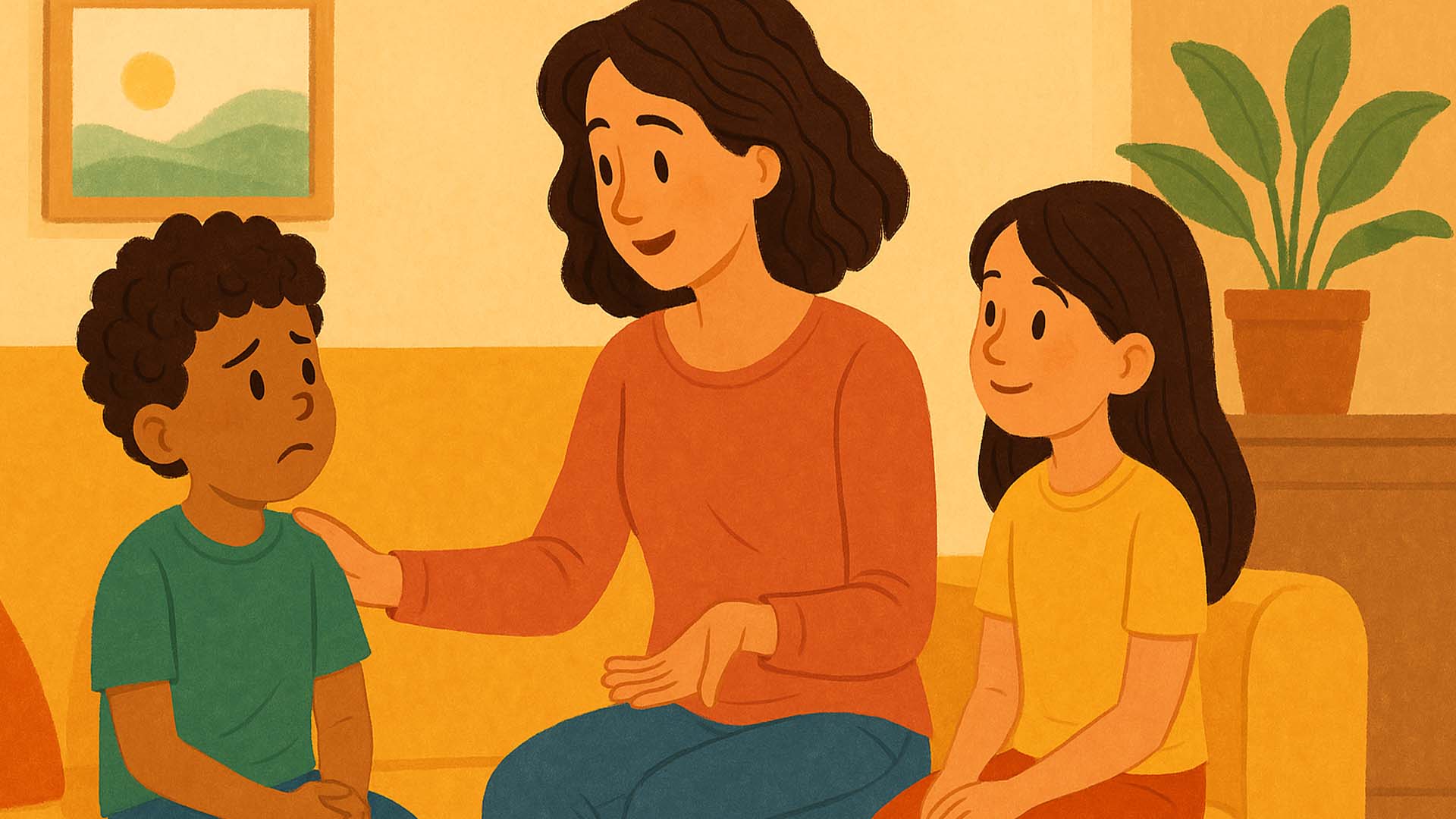Have you ever wondered why your parents talk to you about your feelings, or why they try to understand why you did something instead of just getting mad? That’s a lot like gentle parenting! It’s a way that grown-ups try to raise kids with lots of love, understanding, and respect. It’s all about helping you learn and grow into a happy, confident, and kind person. Instead of just telling you what to do, gentle parenting helps you understand why certain rules are important and how to manage your big feelings. It’s like having a super supportive coach who helps you learn from your mistakes and celebrates your successes!
What is Gentle Parenting?
Gentle parenting is a way of raising children that focuses on connection, empathy, respect, and understanding [1]. It’s about helping children learn to manage their emotions and behaviors in a positive way, rather than just using punishments. Think of it like this: instead of saying, “Because I said so!” a gentle parent might say, “I understand you’re upset, but we need to put away the toys so no one trips and gets hurt.” This helps you understand the reason behind the rule and how your actions affect others.
How Does Gentle Parenting Work?
Gentle parenting involves a few key ideas:
- Empathy: Your parents try to understand how you’re feeling, even when you’re having a tough time. They might say, “I see you’re feeling frustrated right now.” This helps you feel heard and understood.
- Respect: Gentle parents respect your feelings and opinions, even if they don’t agree with them. They treat you like a little person with big ideas!
- Understanding: Instead of just reacting to your behavior, gentle parents try to understand why you’re acting a certain way. Are you tired? Hungry? Upset about something?
- Positive Discipline: This doesn’t mean there are no rules! It means that instead of just punishing you, parents help you learn from your mistakes. They might use consequences that teach you something, like helping to clean up a mess you made.
Benefits of Gentle Parenting
When parents use gentle parenting, kids often grow up to be confident, independent, and happy [2]. They learn to understand their own feelings and how to get along with others. They also learn to solve problems and make good choices because they’ve been taught to think about why things happen. It can also help kids feel more secure and loved, knowing that their parents are there to support them, even when they make mistakes.
Is Gentle Parenting Always Easy?
No, gentle parenting isn’t always easy! Sometimes, parents might feel a lot of pressure to be perfect [3]. It takes a lot of patience and understanding, and sometimes parents might feel like they’re not doing it right. But even when it’s hard, the goal is always to help you grow into a wonderful person. It’s a journey for both parents and kids, full of learning and growing together.
Q&A
Q: What is the main idea of gentle parenting?
A: The main idea is to raise children with connection, empathy, respect, and understanding, focusing on positive discipline and helping kids learn to manage their emotions.
Q: Does gentle parenting mean there are no rules?
A: No, gentle parenting still has rules and boundaries. It just means that parents help children understand why the rules are important and how to learn from their mistakes, rather than just punishing them.
Q: Is gentle parenting only for little kids?
A: Gentle parenting principles can be used with children of all ages, from toddlers to teenagers. The way it looks might change as kids grow, but the core ideas of empathy and respect stay the same.
Sources
[1] PositivePsychology.com. (2024, March 27). Unleashing the Power of Gentle Parenting (& 3 Examples). https://positivepsychology.com/gentle-parenting/
[2] Cleveland Clinic Health Essentials. (2022, August 5). What Is Gentle Parenting? https://health.clevelandclinic.org/what-is-gentle-parenting
[3] The Conversation. (2023, November 29). Gentle parenting can be really hard on parents, new research suggests. https://theconversation.com/gentle-parenting-can-be-really-hard-on-parents-new-research-suggests-217508








0 Comments